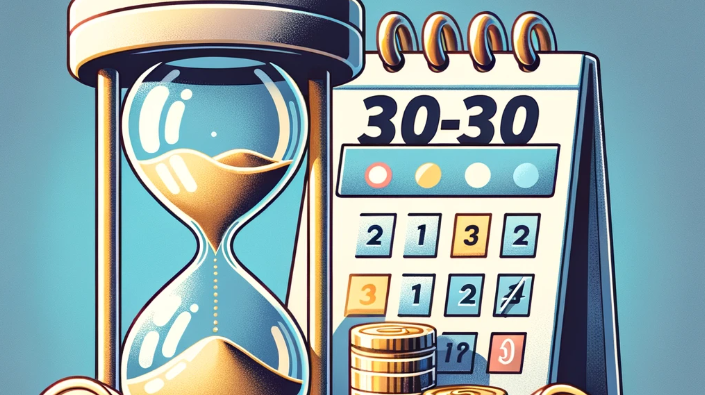Do you often fall into the consumer trap and make many impulse purchases? Then you should pay attention to these rules.
Others are reading now
Electricity, health insurance, groceries: Costs are rising across the board. To avoid unnecessarily spending money on things you don’t really need, you can follow the 30-30 rule.
How the 30-30 Rule Works
Before you purchase something that costs more than 30 francs, you should wait 30 hours and consider whether you truly need the item. If something costs more than 100 francs, you should even wait 30 days.
This timeframe helps you determine if you genuinely need the item, or if you can do without it. If the desire to purchase remains, you’ve made a conscious decision and prevented an unnecessary impulse buy.
The threshold doesn’t have to be strictly at 30 francs. Depending on your budget, you could set it at 50 francs, as Comparis financial expert Michael Kuhn says. “The important thing is to think about whether you really need expensive and not necessarily essential products,” Kuhn advises.
Also read
The 50-30-20 Rule Can Also Help
Other shopping rules can also be beneficial. Financial expert Karolina Decker recommends the 50-30-20 rule in the business magazine “Business Insider.” It suggests allocating half of your income to basic needs like rent, health insurance, and groceries. 30 percent for personal expenses like entertainment and dining out, and 20 percent for long-term goals like saving, debt reduction, or investing.
Kuhn notes that this ratio is recommendable based on personal preferences. “Those who prefer staying at home and have few other expenses can allocate more for rent. Those who value their car or going out immensely should save on rent.” Such guidelines are helpful for orientation.
Preventing the Shopping Frenzy During Winter Sales
The consumer trap is particularly large now as retailers launch their winter sales. At the end of January, they typically lure customers with significant discounts. However, some offers are not as favorable as they seem and are mere fake promotions.
Price comparisons can help against this, says Kuhn. He also recommends looking at previous models for tech products. “Especially with smartphones, laptops, or TVs, it’s incredible how much you can save if the latest version isn’t a must.”
AI chatbots like ChatGPT or Bart could now offer excellent product comparison capabilities. “You just need to enter the model you’ve seen and whether the price or a specific feature like battery life is particularly important, and you usually see good results,” says Kuhn.
According to financial expert Decker, other strategies like shopping lists, a set budget, or discounts and coupons can also help. Do you know another saving tip? Write it in the comments section.


